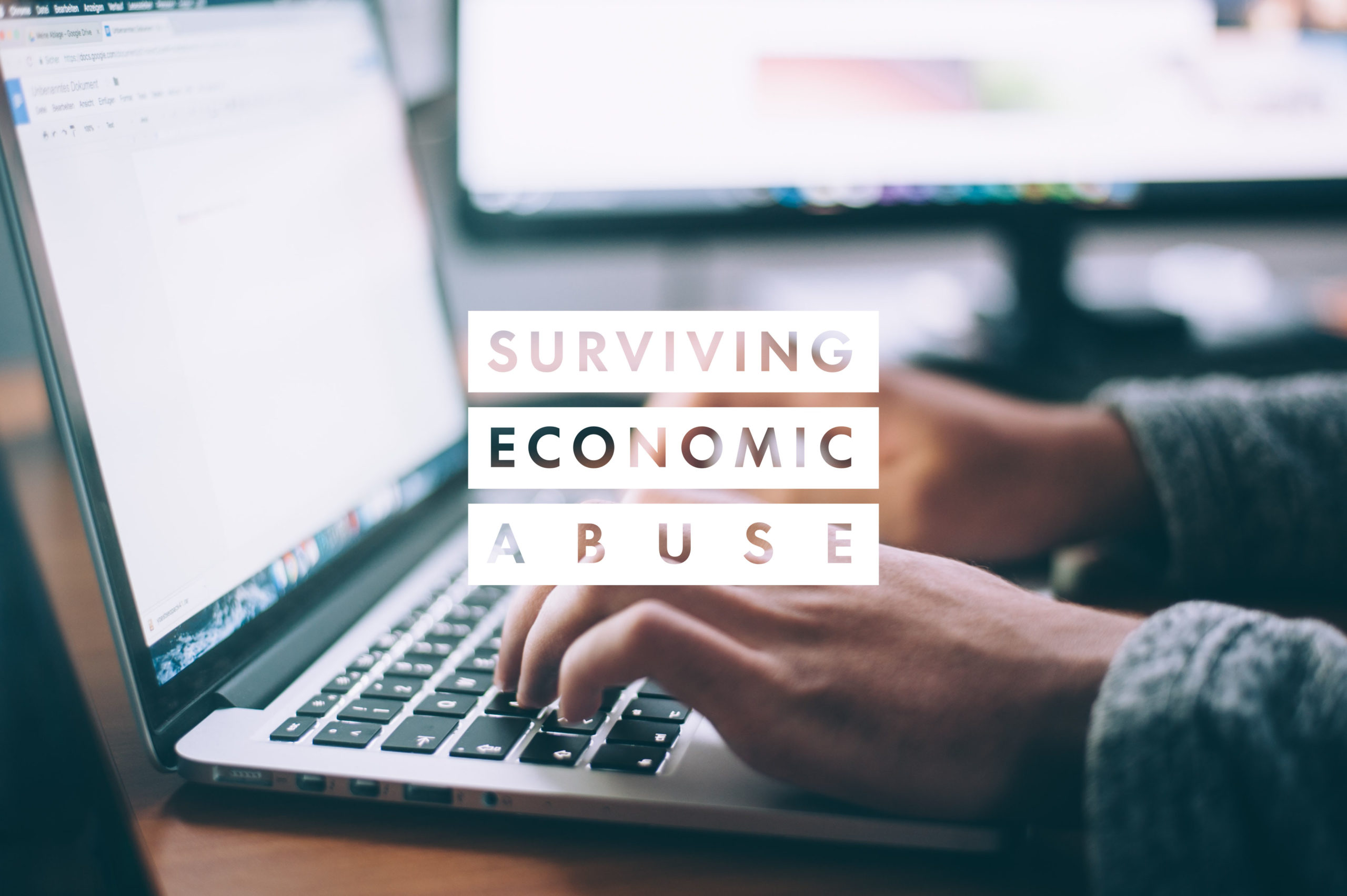To drive change for victim-survivors, we are committed to learning from and contributing to the growing evidence base on economic abuse.

Research library
The evidence base on economic abuse and the negative economic impact of domestic violence more broadly has expanded over the past ten years. Our research library brings together evidence from the UK and around the world to help develop understanding of economic abuse.
Access the research libraryOur research
We use research and evidence to expose the scale and impact of economic abuse, ensuring victim-survivors’ experiences drive change. We translate data into action, shaping policy, influencing practice, and equipping professionals across sectors to respond more effectively.
Counting the Cost: The Scale and Impact of Economic Abuse in the UKGlobal study on economic abuse
December 2022
This in-depth research gives a picture of what economic abuse looks like globally in the context of intimate partner violence, drawing on findings from six continents. The study compiled a range of data on prevalence, nature, and policy & industry responses to economic abuse around the world.
Economic abuse as an invisible form of domestic violence: A multicountry review
March 2018
This article, which SEA’s CEO co-authored, examines 46 peer-reviewed research articles from multiple countries which include definitions and measures of economic abuse. The research found that the number of articles identified on economic abuse was considerably less than the number which would be found looking at other forms of domestic abuse. Whilst there was growing consistency among the definitions and measures of economic abuse used, work remains to be done.
Into plain sight
December 2017
An analysis of how economic abuse is reflected in successful prosecutions of controlling or coercive behaviour
Seen yet sidelined
September 2023
An updated analysis of how economic abuse is reflected and responded to within successful prosecutions of the Controlling or Coercive Behaviour Offence.
A survivor-led approach to policy influencing
May 2022
Final evaluation of the Women First policy support grant funded by Smallwood Trust
Denied Justice: How the legal aid means test prevents victims of domestic abuse from accessing justice and rebuilding their lives
October 2021
This research looked at victim-survivors’ experiences of the legal aid means test and how it is preventing them from accessing legal aid just when they need it most.
Supporting survivors of economic abuse: Implementing learning in the UK
June 2021
In this report, Nicola Sharp-Jeffs revisits her original Winston Churchill Memorial Trust report and reflects on SEA’s growth since her Fellowship five years ago and the role the charity will play in tackling economic abuse going forward.
Understanding the economics of abuse: An assessment of the economic abuse definition within the Domestic Abuse Bill
February 2021
This article critically assesses the definition of economic abuse included in the then-draft Domestic Abuse Bill, which SEA successfully campaigned for. It recognises that whilst this definition draws upon academic research on economic abuse, it could be strengthened further.
“Economic abuse is your past, present and future”
May 2018
Summary of learning gathered from a roundtable aimed to shape the development of the Domestic Abuse Bill (England and Wales).
Supporting survivors of financial abuse: Learning for the UK
2016
In 2016, Dr Nicola Sharp-Jeffs OBE was awarded a Churchill Fellowship and travelled to the United States and Australia to explore innovative responses to economic abuse. This report outlines the key finidings and recommendations arising from the Fellowship.
Responding to coerced debt: Final evaluation of the Economic Justice Project
September 2020
An overview of the Economic Justice Project and key learnings that emerged from it. The findings are aimed at innovating the UK response to economic abuse at both a local delivery and national policy level.
Responding to coerced debt: Consumer advocacy
September 2017
Conducted as part of SEA’s Economic Justice Project, this scoping report outlines what economic advocacy (including around consumer issues) was available at the time to victim-survivors accessing support from domestic violence services working across the London Borough of Hammersmith and Fulham, the Royal Borough of Kensington and Chelsea, and the City of Westminster.
Coerced debt – impact and statistics
Current statistics on the prevalence and impact of coerced debt in the UK.
Survivors’ Needs: How financial services firms can support customers experiencing economic abuse to regain financial control and rebuild their lives
April 2025
Research examining economic abuse victim-survivors’ experiences accessing support from their bank, in particular the experiences of women from Black and racially marginalised backgrounds and migrant survivors.
Benefits or barriers?
June 2019
This report, authored by Marilyn Howard with support from SEA, explores how social security payments across the four nations of the UK impact victim-survivors. Looking at the different stages a victim-survivor may experience (such as whilst living with an abuser, when leaving and whilst rebuilding), the report demonstrates how the social security system fails to support victim-survivors when they need it the most.
Universal credit and financial abuse
June 2018
This report, authored by Marilyn Howard with support from SEA, explores the links between financial abuse and the welfare benefit Universal Credit. It raises concerns about the ways Universal Credit can facilitate economic abuse in intimate partner relationships, such as through the default single payment per couple. The report also highlights concerns about the gender impact of aspects of the design of Universal Credit.
‘Coronavirus has been the perfect excuse for him to just stop paying’: child maintenance and economic abuse in the UK during the COVID-19 outbreak
January 2022
This article, written by SEA’s Research Officer, uses the findings from SEA’s The Cost of Covid-19 research to explore how perpetrators of economic abuse were able to stop, reduce or unreliably pay child maintenance payments during the covid-19 pandemic. Using interviews with victim-survivors of economic abuse, the research explores the impact of missing, late and incomplete payments on women and their children, and women’s experiences of contacting the Child Maintenance Service during the pandemic.
The cost of Covid-19
April 2021
Through interviews with victim-survivors and the frontline professionals who work with them, this research builds a picture of their experiences throughout the pandemic.
The cost of Covid-19: Impact and statistics
April 2021
This fact sheet outlines the profound impact Covid-19 and the coronavirus restrictions had on victim-survivors’ lives.
Shadow pandemic: Shining a light on domestic abuse during Covid
November 2021
Through a partnership between 11 organisations in the domestic abuse sector, this report is a detailed synthesis of the impact of Covid-19 on victim-survivors of domestic abuse in England and the frontline organisations that support them.
Training and supporting banks and building societies
September 2020
an overview of the findings from a summative evaluation of the Project commissioned by Surviving Economic Abuse (SEA) as they relate to supporting banks and training finance professionals
Training the police
A report on training outcomes used to inform course development and delivery
Training financial capability practitioners
An overview and evaluation of a one-day training course for frontline practitioners who provide financial capability support as part of their role.
Evaluation of the Domestic and Economic Abuse Project (DEAP)
August 2020
Findings from the summative evaluation of the Domestic and Economic Abuse Project (DEAP) commissioned by Surviving Economic Abuse (SEA)
Join the international economic abuse research network
The international network was established following our Founder’s Churchill Fellowship.
It shares best practice and research on economic abuse with practitioners, researchers and policy-makers via a newsletter. It has over 100 members across seven countries.
Join the international network
